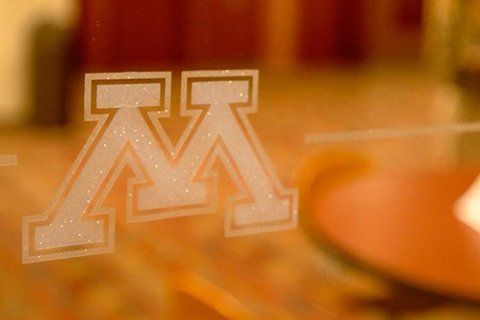Five CSE faculty named McKnight Land-Grant Professors for 2017-19

MINNEAPOLIS/ST. PAUL (02/10/2017) – Five College of Science and Engineering faculty members are among nine recipients of the 2017-19 McKnight Land-Grant Professorship, a program designed to advance the careers of the most promising junior faculty members who are at the beginning stages of their professional careers.
The winners were chosen for their potential to make important contributions to their field; the degree to which their achievements and ideas demonstrate originality, imagination, and innovation; the significance of their research; and the potential for attracting outstanding students.
Each recipient will receive a research grant in each year of the two-year appointment, to be used at the recipient’s discretion for expenditures directly related to research and scholarly activities. In addition, each professor is awarded either a year’s leave to pursue research during the second year of the award or a supplementary research grant.
The new 2017-19 McKnight Land-Grant Professors are:
Assistant professor Sairaj Dhople (electrical and computer engineering)
Dhople develops technologies to systematically integrate renewable resources into the electric power system. At the systems level, this involves formulating algorithms to optimally integrate and operate renewable resources in the power system. At the circuit level, the focus is on designing circuit interfaces between the renewable resources and the electric grid. The unified circuits-to-systems viewpoint is critical to engineer energy technologies that emphasize increased renewable integration, sustainable capacity expansion, and improved electricity access.
Assistant professor Cari Dutcher (mechanical engineering)
Suspensions of tiny particulate matter, called aerosols, are ubiquitous in the atmosphere, and have key implications for our health, environment, and climate. However, there remains a great deal of uncertainty concerning aerosol particle formation processes and ambient properties, since each particle is a highly complex microenvironment. Dutcher’s research aims at developing and integrating analytic advances in thermodynamic modeling with experimental advances in microscale transport phenomena, towards improved understanding of the formation and fate of aerosols in the atmosphere.
Assistant professor Vivian Ferry (chemical engineering and materials science)
Optical metamaterials are a new class of materials formed from the systematic and subwavelength arrangement of nanostructures to guide, confine, and bend light in nanoscale dimensions. Ferry uses techniques of synthesis, optical characterization, and modeling to understand how light interacts with these tailored metallic and oxide nanostructures, to control properties such as light absorption, luminescence, and polarization state, and to ultimately design optical metamaterials for application in solar energy conversion and optoelectronic devices.
Assistant professor Renee Frontiera (chemistry)
The Frontiera lab develops and applies novel spectroscopic techniques to probe chemical reaction dynamics on nanometer length scales. Most current microscopies are restricted by the optical diffraction limit to dimensions much larger than a molecule, which is problematic for imaging processes in biological cells and photovoltaic devices. By developing new techniques with nanometer spatial resolution, the Frontiera lab’s research is uncovering how local environments affect functions like pharmaceutical binding, cellular signaling, and solar cell performance.
Assistant professor Lana Yarosh (computer science and engineering)
Social isolation is a critical challenge for mental health and wellbeing, amplifying depression, substance use disorders, and even mortality. Yarosh investigates how computing technologies can help by combining human-centered investigations with the design of novel computing technologies. She designs, builds, and deploys technologies to support social connectedness in critical contexts, including parent-child separation in divorced families, intergenerational mentorship between community elders and children, and peer support communities for recovery from substance use disorders.
